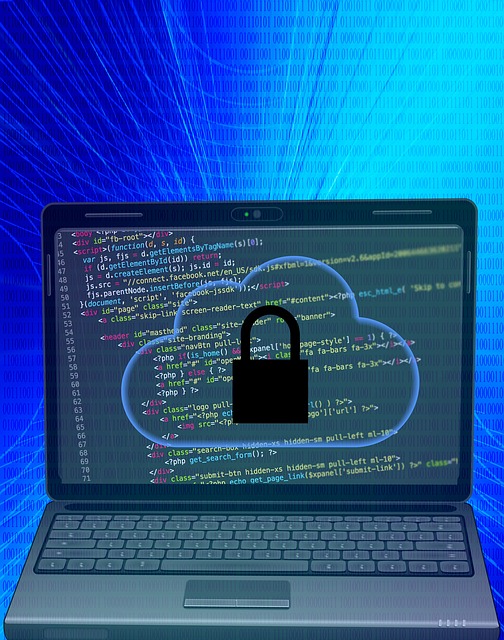When it comes to cybersecurity, one of the worst things a business can do is adopt a hard-line attitude. The cyber threat environment is always changing. If a company has a fixed point of view, it may exaggerate a single source of risk while overlooking other digital risks.
This illustrates how much preconceptions influence cybersecurity-related actions. There are internal pressures and politics when it comes to risk assessment, financial requirements, or objectives, according to Forbes. Security experts and corporate leaders are always looking for ways to place a dollar sign next to their investment and risk,” a security expert tells Forbes.
This means there are still some unanswered concerns about where enterprises may take their security strategy over the next several years, which is understandable. If you’re interested in learning more about how the cybersecurity sector is dealing with five pressing issues, here’s a quick summary:
Do Passwords Have a Negative Impact?
There are three reasons why Microsoft and other technology companies are ditching the password. SSO and other technologies are being considered since they don’t hinder the user experience or productivity of employees as much as more conventional methods of identity security dependent on passwords. As a second benefit, passwordless authentication makes it simpler for businesses to protect legitimate users’ accounts against brute-force attacks and other attacks that depend on guessing weak passwords. For the third time, enterprises are opting to use MFA and other security measures to restrict the scope of what a bad actor may do with access to a hacked password.
However, passwordless authentication has its drawbacks. A new set of targets for hackers to exploit is provided by biometric scanners and fingerprint readers, among other security measures. There are still phishing attempts, frauds, and identity thefts that may be avoided by using passwordless authentication.
The trend toward passwordless authentication isn’t going away anytime soon, despite the potential dangers. As a result, in order to effectively safeguard their users in the future, organizations must grasp the related advantages and dangers.
What Role Do Firewalls Play in a Zero Trust Environment?
It’s a complicated question. Traditional firewalls are ineffective in protecting enterprises against network-based attacks. Consequently, they are unable to assist organizations in maintaining a climate of distrust.
However, next-generation firewalls are not the same (NGFWs). They may be used in conjunction with zero trust to enforce network segmentation and micro-segmentation while also serving as segmentation gateways and other multifarious tools. At the core, not the periphery, of the network, segmentation gateways are located. Information security teams may utilize this data to detect attacks before they become actual security incidents because of the knowledge it provides into how data is accessed.
Can Cyber Ranges Benefit Organizations in the Third Way?
With the rise of remote/hybrid work and high-profile assaults like the Colonial Pipeline disaster, demand for cyber ranges went up. It’s critical to remember that not every company has a long-term need for a cyber range. Building and maintaining one is just too expensive for some people.
However, there are advantages to using cyber ranges. Organizations may enhance the coordination and experience of their security teams, for example, by the use of these tools. Cyber ranges provide infosec professionals a hands-on experience with real-world attacks and responses. The National Institute of Standards and Technology (NIST) and other organizations use cyber ranges to assist enterprises to comply with their standards and regulations.
Businesses must keep in mind that not all cyber ranges are equal. As a result, they must choose which form of cyber range best meets their security requirements. A solution that works for them may then be built and maintained from there.
Is a Traditional Career Path Necessary for Security Professionals?
Not in the least. People who work in information security come from a variety of backgrounds, including military service, playing poker online, and having a music degree. There are new ways to safeguard businesses’ systems and data thanks to these experiences, which have given security specialists a new viewpoint. Anyone can start a career in cybersecurity, and here is why.
As a developer, what can you do to keep your company safe?
In terms of security, there is a lack of coordination. To use just one example, many security specialists have little faith in developers’ abilities to build safe code. The problem is that developers don’t have the right direction to ensure that their companies’ security is protected.
These views demonstrate a lack of clarity in the workplace on digital defense. About a third of security workers responded to a GitLab poll recently, for example, saying they were responsible for security. The responsibility was shared by almost three out of ten participants, while 21 percent believed developers were solely responsible.
There is no doubt that something must be done about this. In the last several years, the pace of software and app releases has sped up significantly. In light of this, developers have a chance to contribute to the security of their organizations.
In order to produce safe code, security specialists and developers must collaborate as equals. For example, they may make their services available through an API consumption-based paradigm. As a result, developers will have a simpler time incorporating security into their work.
Organizations may also take steps to ensure that their developers are receiving security awareness training.
The State of Cybersecurity Is Never Stable
The topics posed above may no longer be available for debate in a few years, but they provide companies with something to think about in the meantime. Unfortunately, there aren’t many people in the security profession.



